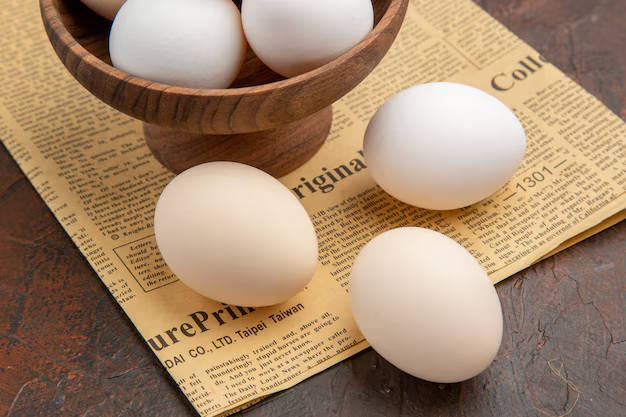Are Egg Whites Still Good? Storing Them Safely in Your Refrigerator
Egg whites are a staple in many kitchens, beloved for their versatility and protein-rich benefits. From light and fluffy meringues to healthier omelets, the uses are endless. However, a common question arises among culinary enthusiasts and novices alike: How long are egg whites good in the refrigerator? Understanding the shelf life and storage of egg whites is crucial to maximizing their potential and ensuring food safety. Let’s dive into this, covering everything from how to store egg whites to recognizing signs of spoilage, along with practical kitchen tips.
Why Egg White Storage Matters
Egg whites are primarily composed of water and protein and are highly perishable if not handled and stored properly. Incorrect storage can lead to bacterial growth, posing health risks. Proper technique ensures the preservation of flavor, texture, and nutritional benefits while minimizing waste.
✅ Key Considerations:
- Food Safety: Improperly stored egg whites can become a breeding ground for bacteria such as Salmonella.
- Freshness and Quality: Correct storage preserves both taste and texture, essential for culinary success.
Storing Egg Whites: Best Practices
Refrigeration Essentials
Refrigerators are your best friend when it comes to storing egg whites. Keeping them chilled significantly slows down bacterial growth, maintaining their safety and quality.
Temperature Matters: Ensure your refrigerator is set below 40°F (4°C). This temperature range inhibits bacterial proliferation.
Airtight Containers: Store egg whites in a clean, airtight container. This prevents exposure to air and moisture, both of which can accelerate spoilage.
Label and Date: Always label your container with the storage date. This simple step ensures you don’t unknowingly use egg whites past their prime.
How Long Can You Keep Egg Whites?
In general, fresh egg whites stored correctly in the refrigerator are good for up to 4 days. Beyond this period, their quality diminishes, and the risk of spoilage increases.
🗓 Summary Table: Egg White Shelf Life
| Storage Method | Duration |
|---|---|
| Refrigerator | Up to 4 days |
| Freezer | Up to 12 months |
Can You Freeze Egg Whites?
Absolutely! Freezing extends the shelf life significantly, allowing you to keep egg whites for up to a year.
Freezing Tips:
- Portion and Freeze: Consider freezing in individual portions using an ice cube tray for quick and easy defrosting.
- Seal Properly: Transfer frozen portions to a heavy-duty freezer bag or an airtight container, removing as much air as possible.
- Thaw Gently: Thaw egg whites in the refrigerator overnight to preserve texture and ensure safety.
Recognizing Spoiled Egg Whites
Using spoiled egg whites can ruin your recipe and pose a health risk. Knowing what to look for is essential.
Indicators of Spoilage
Unpleasant Odor: Fresh egg whites have a neutral smell. An off or sulfurous odor is a telltale sign of spoilage.
Discoloration: Cloudy or discolored egg whites indicate degradation.
Texture Changes: Gel-like or unusually watery textures are red flags.
When in Doubt, Throw It Out
If you’re uncertain about the freshness of your egg whites, the best practice is to err on the side of caution and discard them. Safety always comes first in food storage.
Practical Kitchen Tips for Using Egg Whites
Having understood how to store egg whites, let’s explore some practical tips to make the most out of them in your kitchen endeavors.
Cooking with Egg Whites
Beating for Meringue: Ensure all mixing bowls and utensils are dry and grease-free for the best results.
Thickening Agent: Use egg whites in soups and sauces for a healthier thickening alternative.
Healthier Cooking: Substitute egg whites for whole eggs in recipes to reduce cholesterol and fat content.
Waste Reduction Hacks
Batch Prep: Prepare egg white dishes in bulk and portion them for quick, healthy meals throughout the week.
Creative Usage: Try using egg whites in unexpected dishes like cocktails for a unique frothy texture.
Storage Solutions: Invest in quality airtight containers to enhance freshness and prevent leakage.
Egg Whites: FAQs and Common Concerns
Q: Can I use egg whites after the ‘best by’ date on the carton?
A: The ‘best by’ date is about quality, not safety. However, using them close to this date ensures optimal performance.
Q: Are pasteurized egg whites better for storage?
A: Pasteurization does not extend shelf life but reduces bacterial load, making them safer to use in raw or gently cooked recipes.
Q: How do I know if egg whites are pasteurized?
A: Check the packaging. Pasteurized egg products are typically labeled as such.
Your Quick Reference Guide
Here’s a handy bullet-point summary to keep by your fridge for quick reference:
- 🧊 Refrigeration: Store egg whites in the fridge for up to 4 days.
- ❄️ Freezing: Long-term storage possible by freezing; lasts up to 12 months.
- 🏷️ Label: Always mark storage date on containers or bags.
- 🚨 Check Freshness: Look for neutral odor, clear color, and smooth texture.
- ✂️ Portion Control: Freeze in portions for easier, flexible use.
- ⚠️ Safety First: If in doubt, dispose of questionable egg whites.
Egg whites, when stored and handled appropriately, can be a valuable and nutritious part of your cooking routine. With these storage tips and culinary hacks, you can maximize their utility while ensuring safety and quality in every dish.
Feeling empowered? Now that you’re equipped with the knowledge to store egg whites properly, enjoy experimenting with them in your kitchen with confidence. Safe storage and creative usage – the kitchen duo that makes all the difference!

